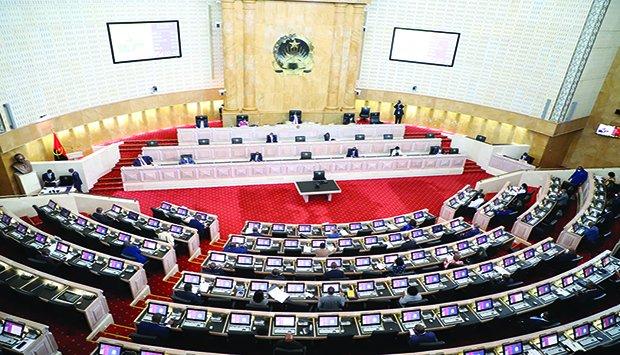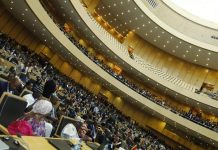Africa-Press – Angola. The proposed Organic Law on the Organization and Functioning of Courts of Common Jurisdiction is being discussed today in the National Assembly. At the plenary meeting with eight items on the agenda, the Draft Law on Cremation of Bodies, the Draft Law on the Tax Benefits Code and the Draft Law amending the Law on Posts and Badges of the National Police are also scheduled for debate.
According to the spokesman of the National Assembly, Raúl Lima, the deputies will also discuss and approve, in general, the Draft Law on Popular Action, a legislative initiative of the Executive, the Draft Law on Anti-Doping in Sport and the Draft of Right to Petition, on the initiative of UNITA.
The Parliament decided to unite the Law Proposal on Popular Action, of legislative initiative of the Executive, and the Project of Right of Petition, of UNITA. The diplomas aim to strengthen citizenship.
Recently, the president of the MPLA Parliamentary Group, Virgílio de Fontes Pereira, said that there are many converging points in the two diplomas: “The draft Law on the Right to Petition and the Draft Law on Popular Action are tributary in what has to do with the strengthening of citizenship in a Democratic State of Law that we are building.”
UNITA against the merger of diplomas
In a press conference, the second vice-president of the Parliamentary Group of UNITA, Mihaela Webba, defended yesterday that the Bill on the Right to Petition, initiated by his party, the Executive’s Proposal on the Right to Popular Action, scheduled for today, in general, cannot be merged, as they are two separate documents.
According to the deputy, the diplomas, in addition to being different, aim to regulate divergent fundamental rights, enshrined in different articles of the Constitution of the Republic. Mihaela Webba also defended that the rights in question are those of Petition, Denunciation, Complaint and Complaint, enshrined in article 73 of the Constitution, while the Right of Popular Action is in article 74.
He explained that petitions, denunciations, complaints and grievances are aimed both at the defense of individual and collective rights aimed at one or more specific people and at the defense of the Constitution, whereas complaints and grievances aim at both the defense of rights, laws and the general interest.
Despite disagreeing with the joining of the proposals, UNITA recognized that the two diplomas guarantee the exercise of fundamental rights and freedoms, which reinforce citizen participation in public life, and are well-prepared, concise and deserve unanimous approval by the National Assembly, both in general and in particular.
For More News And Analysis About Angola Follow Africa-Press






